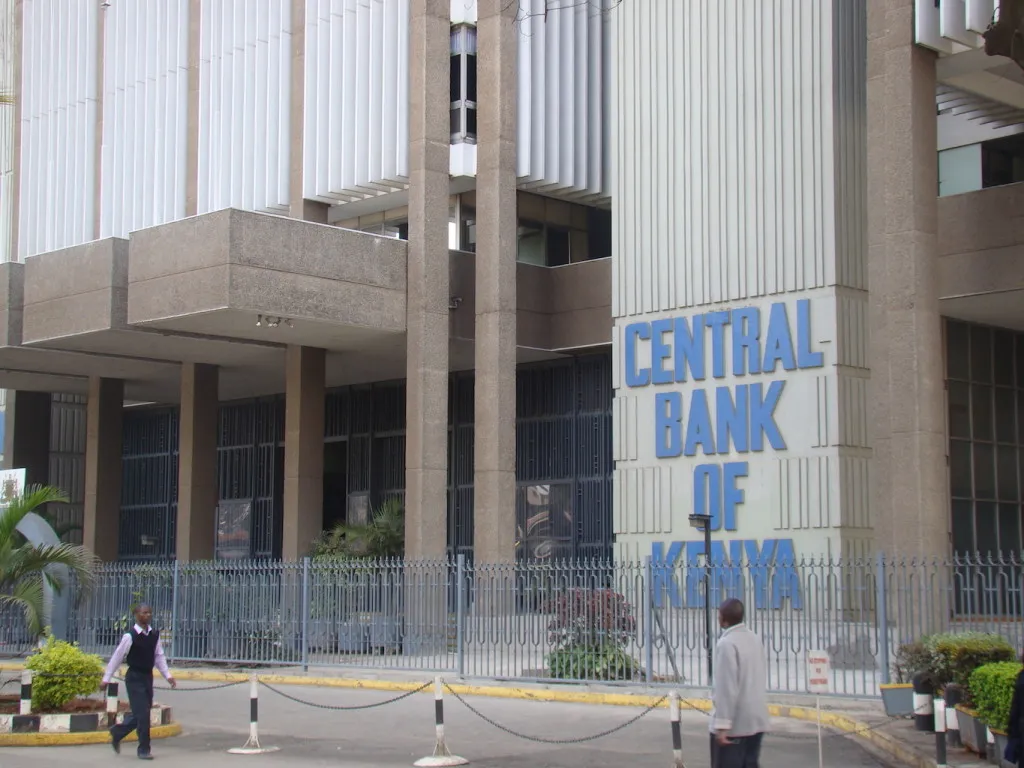In a bold move signaling a significant shift in its domestic economic policy, the Tanzanian government has issued a directive effectively banning Kenyans and other foreign nationals from engaging in 15 specific business activities. These sectors, traditionally dominated by small and medium-sized enterprises (SMEs), are now exclusively reserved for Tanzanian citizens. The directive aims to safeguard and empower local entrepreneurs, reshaping the country’s economic landscape.
The new regulations stipulate that licensing authorities will no longer issue or renew business licenses for foreigners to operate in the designated sectors. Foreigners currently holding licenses in these affected areas will be permitted to continue operations only until their existing permits expire.
“The business activities specified in the Schedule to this Order shall not be carried out by non-citizens,” affirmed Tanzania’s Minister for Trade and Industry, Selemani Saidi. “Upon coming into effect of this Order, licensing authorities shall not issue or renew a licence for a non-citizen to carry out any of the business activities prohibited under this Order.”
Strict Penalties for Non-Compliance
The Tanzanian government is serious about enforcing this new directive, with stiff penalties outlined for violators. Non-citizens found conducting prohibited businesses face a fine of no less than 10 million Tanzanian shillings (approximately $3,850 USD), imprisonment for up to six months, and potential deportation through revocation of their visa and resident permit.
Furthermore, Tanzanian citizens who assist or aid foreigners in evading the ban will also face legal repercussions, including a fine of five million shillings (approximately $1,925 USD) or imprisonment for up to three months. These stringent measures underscore the government’s determination to ensure compliance and protect the integrity of its new policy.
“Subject to the provisions of subparagraph (2), a person commits an offence if in case of a non-citizen, such person carries out any of the business activities specified in the Schedule to this Order and upon conviction shall be liable to a fine of not less than ten million shillings or imprisonment for a term not exceeding six months and revocation of visa and resident permit,” the notice elaborated. “In case of a Tanzanian citizen, such person assists or aids a non-citizen to carry out any of the business activities prohibited under this Order and upon conviction shall be liable to a fine of five million shillings or imprisonment for a term not exceeding three months.”
The Full List of Prohibited Business Activities for Foreigners
The directive explicitly lists 15 business ventures now off-limits to foreign nationals:
- Wholesale and retail trade (excluding supermarkets and specialized outlets)
- Mobile money transfers
- Mobile phone and electronic device repairs
- Salons (except those located within hotels or catering specifically to tourism)
- Cleaning services
- Small-scale mining
- Postal and parcel delivery services
- Local tour guiding
- Operation of radio and TV stations
- Museums and curio shop operations
- Brokerage or agency in business and real estate
- Clearing and forwarding services
- On-farm crop purchasing
- Gambling machine operations (outside licensed casino premises)
- Ownership and operation of micro and small industries
This comprehensive list targets sectors that are often labor-intensive, require relatively low capital investment, and are crucial for the livelihoods of a large number of local Tanzanian entrepreneurs.
The Economic Rationale: Empowering Local SMEs
The primary motivation behind this directive is to protect and empower Tanzania’s small and medium-sized enterprises (SMEs). SMEs are the backbone of the Tanzanian economy, accounting for an estimated 35% of the Gross Domestic Product (GDP) and providing 50% of national employment, as detailed in reports by TanzaniaInvest and TICGL. This sector comprises over 95% of the country’s businesses, spanning diverse industries such as agriculture, manufacturing, services, and construction.
Despite their significant contribution, Tanzanian SMEs face numerous challenges that hinder their growth and sustainability. These include:
- Limited access to finance and credit: Only about 20% of SMEs obtain formal financial services.
- Complex regulatory environments: High compliance costs, complex tax structures, and lengthy registration procedures often discourage formalization.
- Inadequate skills and training: Many SME owners lack formal business or technical training, impacting their managerial and marketing capabilities.
- Intense competition: Local businesses often struggle against foreign competitors who may have access to larger capital, cheaper goods from international supply chains, and more aggressive pricing strategies, a challenge highlighted in analyses by TICGL and SIDO.
The directive comes amid growing complaints from some Tanzanians that foreigners, particularly Chinese nationals, have increasingly encroached upon business activities traditionally reserved for locals. The bustling Kariakoo market in Dar es Salaam, the commercial hub, has been a focal point of this tension. A recent parliamentary investigation into 75 foreign-owned shops in Kariakoo revealed that the majority, predominantly run by Chinese traders, were operating in the retail space – an area legally preserved for Tanzanian citizens. Local traders have voiced concerns about being “priced out” of their own markets due to foreign competitors’ ability to undercut prices, leading to what some describe as “economic suffocation,” as reported by Sautikubwa.org and The Chanzo.
By ring-fencing these 15 sectors, the government aims to create a more level playing field for local entrepreneurs, enabling them to thrive without direct competition from foreign entities that may possess disproportionate advantages. This move is expected to stimulate local investment, foster indigenous business growth, and ultimately contribute to job creation for Tanzanian citizens.
A Growing African Trend: Local Content Policies Across the Continent
Tanzania is not alone in implementing such protective measures. It joins a growing list of African nations that are actively ring-fencing certain business activities for their nationals as part of broader local content policies. This trend reflects a continent-wide push to ensure that economic growth translates into tangible benefits for local populations, rather than primarily enriching foreign investors.
Examples of other African countries that have implemented similar policies include:
- South Africa: While known for its open economy, South Africa has increasingly emphasized local content requirements, particularly in sectors like mining, manufacturing, and energy, to promote local procurement and job creation.
- Zimbabwe: Has a long-standing indigenization policy, though its implementation has varied over time, aimed at increasing local ownership and control of businesses.
- Ghana: Has implemented local content laws, particularly in its oil and gas sector, to ensure Ghanaian participation in the industry’s value chain.
- Nigeria: Passed comprehensive local content legislation over a decade ago, particularly for its oil and gas industry, to prioritize Nigerian companies and workers in the sector. This has since expanded to other areas.
- Eswatini (formerly Swaziland): Has policies aimed at empowering local businesses and limiting foreign participation in certain small-scale sectors.
- Zambia: Has been developing and implementing local content strategies, particularly in mining, to foster business linkages and build local capacity.
- Botswana: Has policies promoting citizen economic empowerment, which can include preferences for local businesses in certain tenders and sectors.
These policies, while varying in scope and enforcement, share a common objective: to maximize the economic benefits of investment within the host country by promoting local ownership, employment, and supplier development. They are often seen as crucial tools for achieving structural transformation, shifting economies from reliance on raw material extraction to more diversified, value-added sectors like manufacturing and services, as discussed by Hogan Lovells and The Borgen Project.
However, the implementation of such policies is not without its complexities. While they aim to boost domestic industries, they can sometimes face challenges such as:
- Lack of local skills and capacity: If local businesses or workers lack the necessary expertise, strict local content requirements can lead to inefficiencies or a slowdown in project implementation.
- Impact on Foreign Direct Investment (FDI): Some foreign investors may perceive such restrictions as deterrents, potentially leading to reduced FDI inflows or a shift in investment to less restrictive markets. Studies on local content requirements and FDI show mixed results, with some suggesting that overly severe policies can push away multinational corporations, while others argue that well-designed policies can increase a country’s welfare, as explored in research by ResearchGate.
- Compliance and fraud risks: There can be instances where foreign entities use local “front” companies to circumvent regulations, leading to issues of transparency and accountability, as highlighted by Covafrica.com.
Tanzania’s approach, by specifically targeting small-scale, locally-dominated sectors, appears to be a calculated move to minimize potential negative impacts on large-scale foreign investment in strategic areas, while maximizing benefits for its vast SME sector.
Tanzania’s Broader Economic Vision and Investment Climate
This new directive fits within Tanzania’s broader economic development agenda, which prioritizes industrialization, job creation, and improved living standards for its citizens. The country’s National Development Plan for 2025/26 outlines strategic priorities to sustain economic growth, enhance infrastructure, and improve social services, with a projected GDP growth of 6.0%. The plan emphasizes industrialization, investment, agriculture, and public-private partnerships (PPPs) to drive development. Key focus areas include energy expansion, transport modernization, job creation, and food security, all aimed at ensuring a resilient and self-sufficient economy, as detailed by TICGL and the Ministry of Finance.
Tanzania’s government, under President Samia Suluhu Hassan, has also been actively working to improve the overall investment climate. The revised Tanzania Foreign Policy 2024, launched in May 2025, prioritizes economic diplomacy, diaspora inclusion, and strategic international partnerships, according to TanzaniaInvest and Media OutReach Newswire. Efforts have been made to streamline business procedures, ease regulations, and establish one-stop service centers to reduce bureaucracy and corruption. The government has also sought to reduce barriers for investors, including work permits for specialized professionals, and to devise friendly approaches to revenue collection.
However, despite these efforts, investors have previously cited challenges such as regulatory bureaucracy, inconsistent tax administration, land acquisition issues, and infrastructure inefficiencies, as noted in the 2024 Investment Climate Statements by the U.S. State Department and the Tanzania Investment Report 2023 by the Bank of Tanzania. The new ban on foreign participation in certain sectors adds another layer to the investment climate, signaling a clear preference for local participation in specific segments of the economy.
Looking Ahead: Balancing Protectionism with Growth
The Tanzanian government’s decision to restrict foreign participation in 15 business sectors is a decisive policy intervention aimed at empowering its local entrepreneurs. It reflects a growing sentiment across Africa to ensure that economic growth is inclusive and directly benefits national populations.
While the immediate impact on foreigners currently operating in these sectors will be a phased exit, the long-term goal is to foster a more robust and self-reliant local business ecosystem. The success of this policy will largely depend on the government’s ability to:
- Effectively enforce the ban and prevent circumvention.
- Provide adequate support and resources to local SMEs to fill the void left by foreign operators and scale up their operations. This includes improving access to finance, business development services, and skills training.
- Maintain a clear distinction between sectors reserved for locals and those open to large-scale foreign investment, ensuring that the overall investment climate remains attractive for strategic FDI that brings capital, technology, and expertise.
- Manage any potential diplomatic fallout with countries whose citizens are most affected by the ban, such as China.
This move by Tanzania is a bold statement about national economic sovereignty and the prioritization of local empowerment. As the country continues its journey towards industrialization and higher living standards, the effectiveness of this policy in fostering a truly competitive and inclusive economy will be closely watched by both domestic and international observers. It represents a significant step in Tanzania’s ongoing effort to shape its economic destiny on its own terms.
Ready to take your career to the next level? Join our dynamic courses: ACCA, HESI A2, ATI TEAS 7 , HESI EXIT , NCLEX – RN and NCLEX – PN, Financial Literacy!🌟 Dive into a world of opportunities and empower yourself for success. Explore more at Serrari Ed and start your exciting journey today! ✨
photo source: Google
By: Montel Kamau
Serrari Financial Analyst
30th July, 2025
Article, Financial and News Disclaimer
The Value of a Financial Advisor
While this article offers valuable insights, it is essential to recognize that personal finance can be highly complex and unique to each individual. A financial advisor provides professional expertise and personalized guidance to help you make well-informed decisions tailored to your specific circumstances and goals.
Beyond offering knowledge, a financial advisor serves as a trusted partner to help you stay disciplined, avoid common pitfalls, and remain focused on your long-term objectives. Their perspective and experience can complement your own efforts, enhancing your financial well-being and ensuring a more confident approach to managing your finances.
Disclaimer: This article is for informational purposes only and does not constitute financial advice. Readers are encouraged to consult a licensed financial advisor to obtain guidance specific to their financial situation.
Article and News Disclaimer
The information provided on www.serrarigroup.com is for general informational purposes only. While we strive to keep the information up to date and accurate, we make no representations or warranties of any kind, express or implied, about the completeness, accuracy, reliability, suitability, or availability with respect to the website or the information, products, services, or related graphics contained on the website for any purpose. Any reliance you place on such information is therefore strictly at your own risk.
www.serrarigroup.com is not responsible for any errors or omissions, or for the results obtained from the use of this information. All information on the website is provided on an as-is basis, with no guarantee of completeness, accuracy, timeliness, or of the results obtained from the use of this information, and without warranty of any kind, express or implied, including but not limited to warranties of performance, merchantability, and fitness for a particular purpose.
In no event will www.serrarigroup.com be liable to you or anyone else for any decision made or action taken in reliance on the information provided on the website or for any consequential, special, or similar damages, even if advised of the possibility of such damages.
The articles, news, and information presented on www.serrarigroup.com reflect the opinions of the respective authors and contributors and do not necessarily represent the views of the website or its management. Any views or opinions expressed are solely those of the individual authors and do not represent the website's views or opinions as a whole.
The content on www.serrarigroup.com may include links to external websites, which are provided for convenience and informational purposes only. We have no control over the nature, content, and availability of those sites. The inclusion of any links does not necessarily imply a recommendation or endorsement of the views expressed within them.
Every effort is made to keep the website up and running smoothly. However, www.serrarigroup.com takes no responsibility for, and will not be liable for, the website being temporarily unavailable due to technical issues beyond our control.
Please note that laws, regulations, and information can change rapidly, and we advise you to conduct further research and seek professional advice when necessary.
By using www.serrarigroup.com, you agree to this disclaimer and its terms. If you do not agree with this disclaimer, please do not use the website.
www.serrarigroup.com, reserves the right to update, modify, or remove any part of this disclaimer without prior notice. It is your responsibility to review this disclaimer periodically for changes.
Serrari Group 2025
















